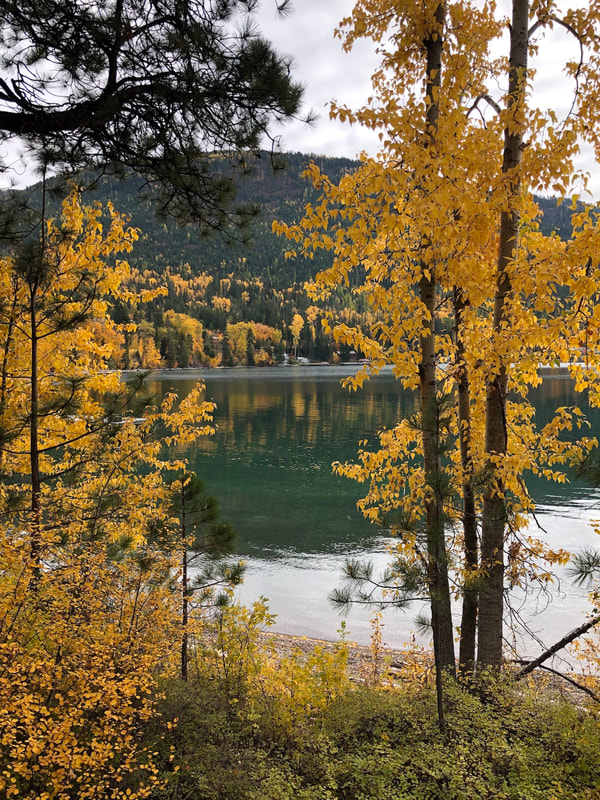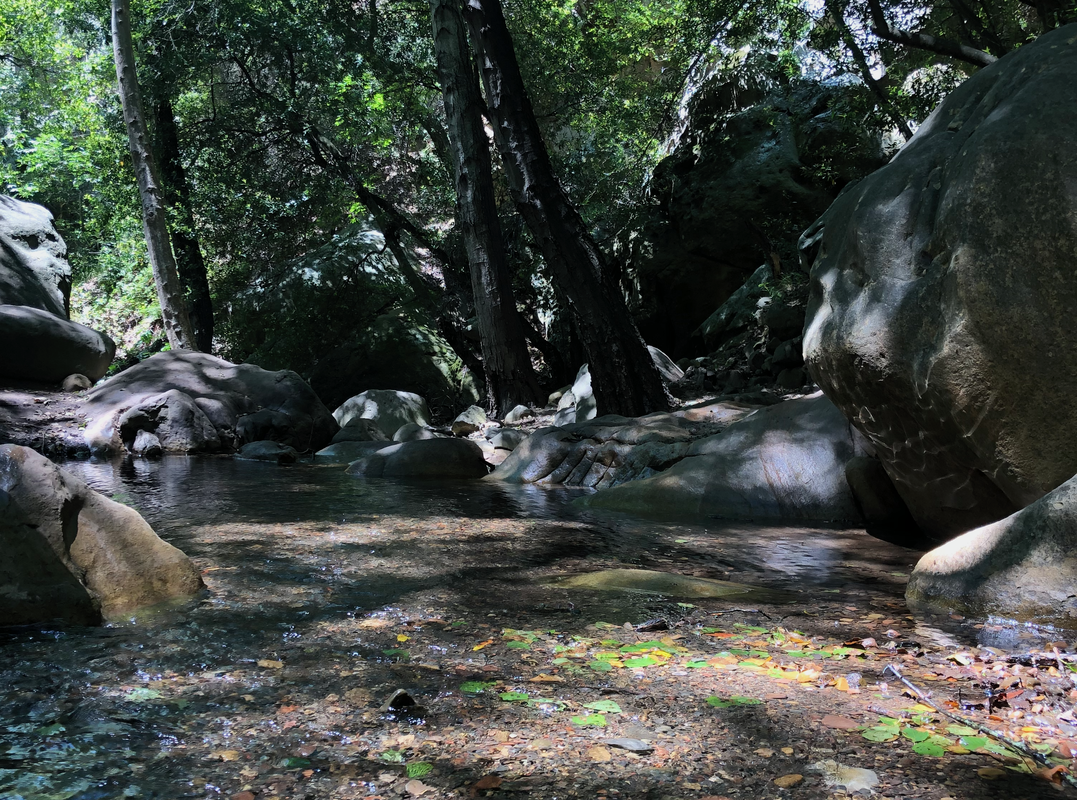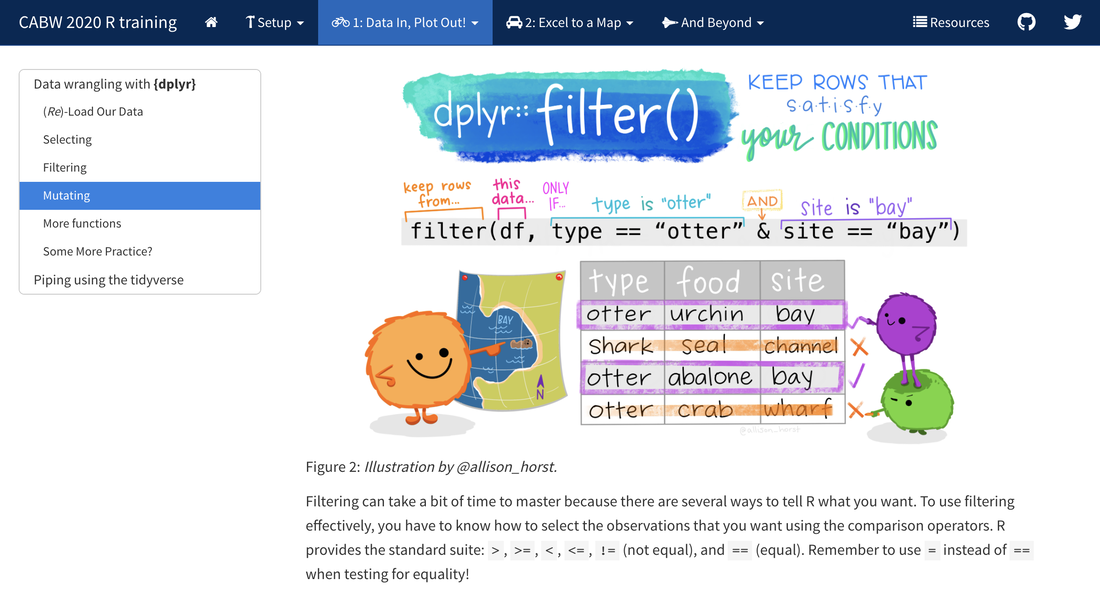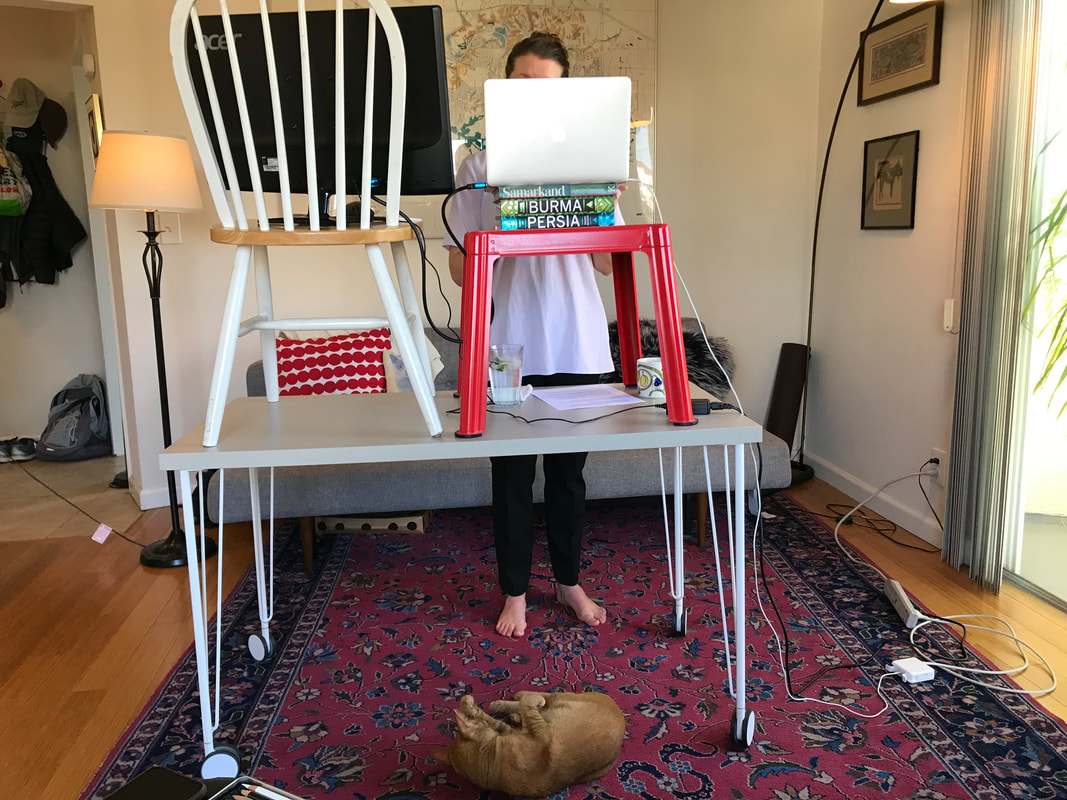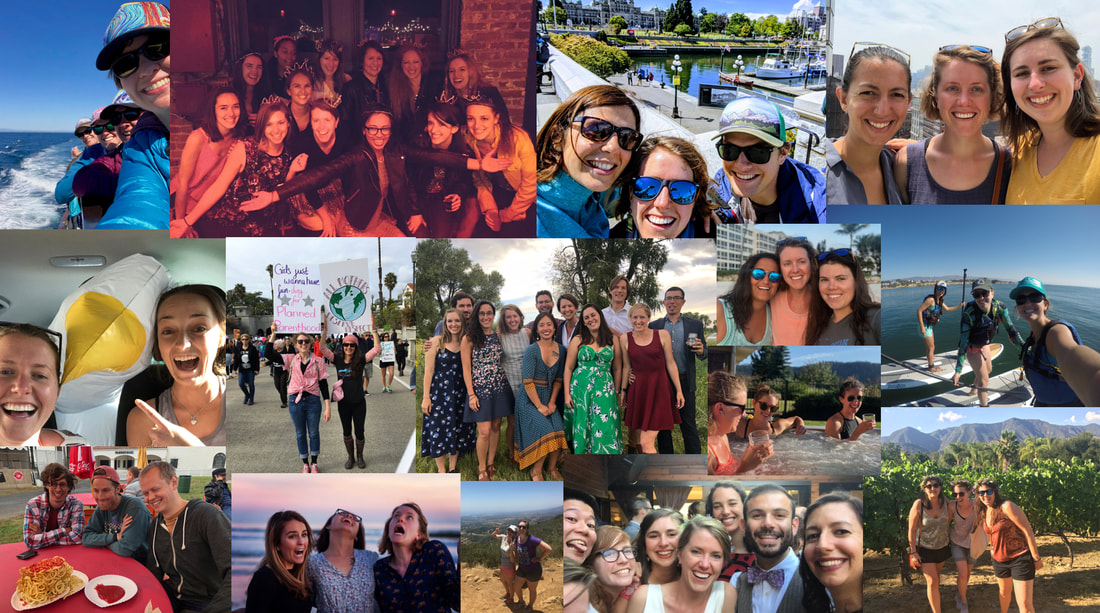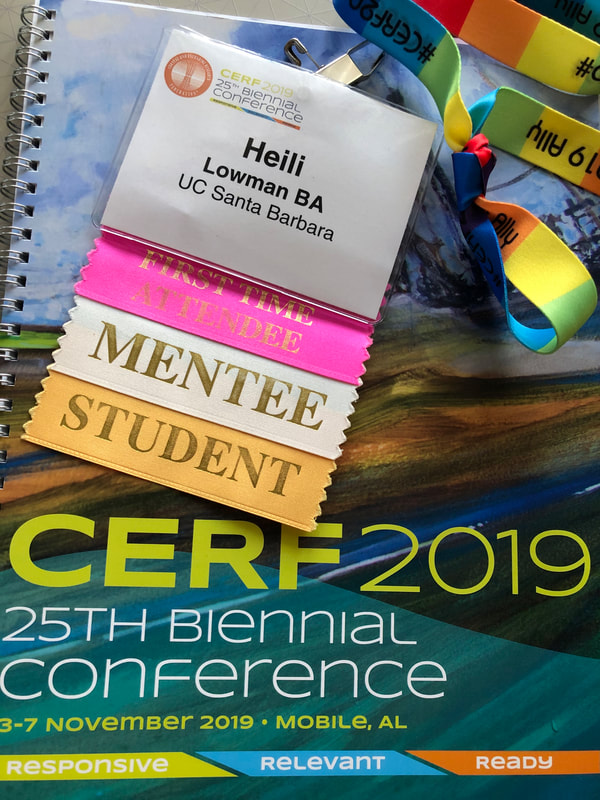|
It's hard to believe a year has already passed here at UNR! Here are a few photos from my local exploring with the Blaszczak lab, friends, and family.
Check out our new paper in Oikos! We examined changes in giant kelp tissue nutritional content over the past 19 years using an existing Santa Barbara Coastal Long Term Ecological Research site dataset. Our results suggest that the nutritional content of giant kelp has declined, and that this decline is correlated with increasing seawater temperatures. A big thank you to my fantastic co-authors, Kyle, Jenny, and Bob! Click on the buttons below to see and hear news coverage about this work:
Check out our new paper in Estuaries & Coasts! Our study examined inputs of terrestrial organic material to nearshore marine sediment following a series of winter storms. Using lignin phenols as biomarkers, we were able to detect changes in the source material and the level of degradation of the material over time. Thank you to co-authors Matthieu, Marc, John and Mark!
Over the past few months, I've organized a series of 20+ coding workshops and hacky hours focused on learning data tidying, analysis, and visualization skills in R/RStudio. The group has covered the basics of using R and RMarkdown, cleaning up data using the tidyverse, creating beautiful visualizations using ggplot and sf, collaborating with others using Git and GitHub, and lots more. If you're interested in following along, all session recordings, scripts, and datasets can be found at our repository on GitHub. Also, I'd like to extend a huge thank you to our many guest lecturers as well as a special thank you to the authors of the palmerpenguins package - Allison Horst, Alison Hill, and Kristen Gorman - which makes several appearances throughout the series.
In mid-October, I co-taught an R workshop for novice to intermediate R/RStudio users at the joint California Society for Freshwater Science and California Bioassessment Workgroup virtual conference. Over the course of the two-day workshop, 40 attendees learned skills in data wrangling, tidying, and visualization, and we were assisted by a fantastic team of helpers who coordinated debugging assistance and fielded questions in real time as my co-instructor, Ryan Peek, and I live-coded the lessons. All of the material, including session recordings, can be found on our website - https://ucd-cws.github.io/CABW2020_R_training/ . I would also like to extend a special thank you to Allison Horst, who allowed us to use her fantastic monsteR illustrations throughout.
In May, I successfully defended my dissertation (setup below) to a virtual audience of family, friends, faculty, and former students (and a live audience of two cats and one husband). I am so grateful to everyone for all of their support and encouragement, and special thanks to John Melack who first provided me with this opportunity and has consistently been my advocate and my mentor. Throughout my degree, I had the support of a tremendous group of friends and family in Santa Barbara and all over the country. I found an incredible community at UCSB, and I am so grateful for all of the friendships and adventures I couldn’t have even begun to envision five years ago. Thank you everyone!
I recently co-hosted a session titled "Marine Sediments: Fluxes, Fauna, and Forecasting" alongside Tina Treude (UCLA) at this year's Ocean Sciences Meeting in San Diego, CA. I also participated in the Ocean Data Labs workshop and presented my ongoing work examining permeable sediments surrounding giant kelp forests as a source of nutrients to the overlying water column. This was my first ever OSM, and I am already looking forward to OSM 2022 in Honolulu! (If anyone is interested in hosting a similar sediment-themed session at the next meeting, please feel free to get in touch!)
It was a busy summer spent finishing up the field and lab portions of my last dissertation chapter! I collected cores from the nearby Goleta Slough and members of the SBC LTER collected cores from nearby kelp forests for use in my sediment bioreactor setup. If you're interested in learning more about my findings, I'll be presenting the results of this project at the upcoming 2020 Ocean Sciences Meeting.
|
AuthorI am a Postdoctoral Associate in the Department of Biology at Duke University. Archives
February 2024
Categories
All
|

